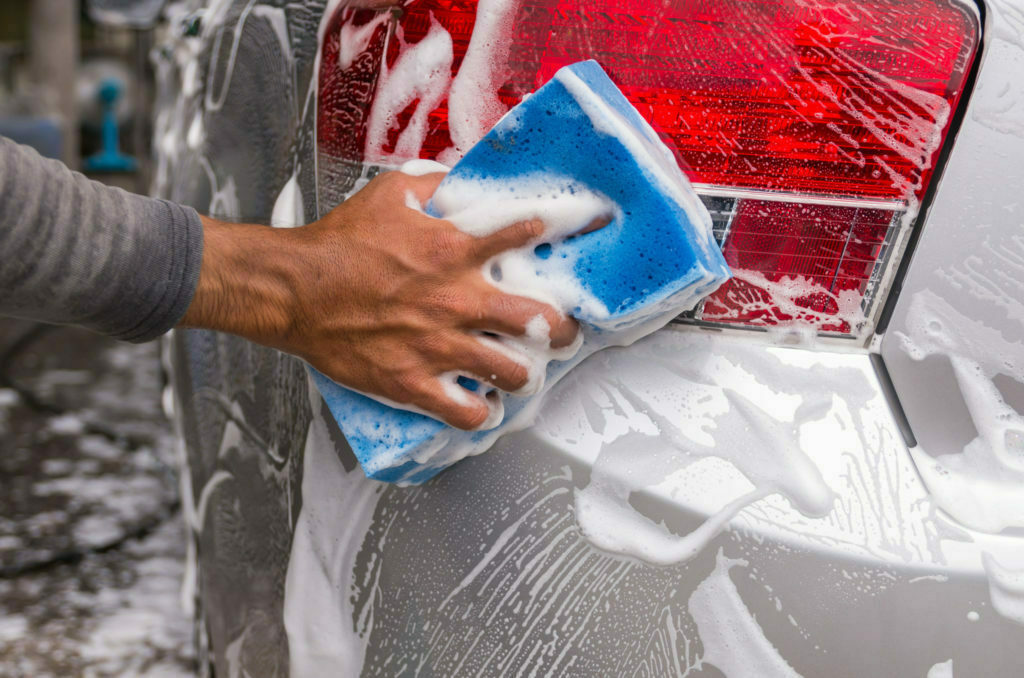Real-world, here I come! Well, not quite yet–I still have one more year here in school. But, after that, I’ll be headed out into the world to try to build my career and my life. I don’t feel totally ready, though, and I’m particularly worried about handling big purchases properly–like a car, which I’ll almost certainly need in order to commute back and forth to my job (assuming I get one–that’s the plan)!
I’m stressed about spending a bunch of money on a car. It feels risky to me to invest a ton of cash into just one thing, and I’m worried that I’m going to wreck the car and lose my money. I’m thinking about going super cheap with things and getting an old used car, but my parents are concerned that’s unsafe. Experts, what advice would you give me?
Choosing which car to buy is certainly a big decision, and owning a car is not without its risks. No wonder so many Americans find buying a car to be extremely stressful! In fact, one study found that we find car shopping to be even more anxiety-inducing than getting married. So you’re not alone, and your apprehension about buying a car is very understandable. Let’s see if we can make things seem a little bit more manageable.
We’ll start out by talking about the risks of buying a car. It’s easy to feel stressed about putting a lot of money into one purchase, but you should know that there are a lot of ways to reduce the risks of the purchase that you are planning. For one thing, you will have car insurance–minimum coverage for things like collision is required by law. It would be wise for you to invest in a more comprehensive policy to protect your big investment from things like theft, vandalism, and even simple wear and tear.
You can also protect your car with regular maintenance, experts say. Rely on a trusted mechanic–one who is properly certified, say the pros at an automotive & diesel technology college in NY–and make sure that you swing by for regular check-ups. If you discover that anything is wrong with your vehicle, act fast to make sure that repairs are made. Postponing repairs is never a good idea–these problems tend to get worse, not better.
You can also care for your vehicle by being smart about how you drive. Driving aggressively, for instance, can take a toll on a vehicle (not to mention cost you money in the form of fuel inefficiency). And you could also choose to avoid taking your car on taxing trips: some people rent vehicles for vacations, for instance, rather than driving their own car long distances. You could also choose to rent an RV, point out the pros at The Mill Hotel, Casino & RV Park, which you can visit if you travel to North Bend, OR.
Preserving your vehicle’s value matters, of course, because you may someday decide to trade it in or sell it. Even if you don’t, you’ll find that a well-maintained and well-preserved vehicle will give you more years of reliable service, meaning that you can wait longer to buy your next vehicle, effectively saving you money.
Understanding how to get more out of your vehicle can also help you understand why it often makes sense to buy new or lightly used vehicles. While it’s true that new vehicles depreciate quickly, there are plenty of reasons to consider buying a new car. With used cars, experts caution, you could find yourself buying a vehicle that has already been damaged by improper care or aggressive use. And with very old used vehicles, you may find that the money you save on the purchase price is later spent on keeping your clunker on the road: really old cars can cost you dearly in repair and maintenance needs, and they are often just one problem away from being totaled. This is not, of course, to say that you should never buy a used car: there are plenty of great pre-owned options from reputable dealers. This is just to say that personal finance professionals advise car buyers to avoid going too cheap, as true clunkers are rarely worth the cost. And if you do buy a used car, be sure to avoid these common mistakes!
Plus, there is your safety to think about. The new 2018 Ford vehicles are safer than ever, dealerships brag, and the same is true of other makes of cars and trucks. With technology always improving, it’s becoming easier and easier to keep yourself–and others–safe on the road. Avoiding accidents and staying safe should always be your top priority.
When the time comes for you to buy a car, try not to stress out. Instead, focus on making an informed and intelligent decision that will reward you with personal safety and financial security. Do your research, test drive cars, and focus on new vehicles and certified used vehicles–steering clear of unreliable dealers, very old and cheap options, and one-on-one purchases that leave you without protections like dealer and manufacturer warranties. Your concern with avoiding financial problems is admirable, but you need to make sure that your spending-averse mindset doesn’t end up costing you more money in the long run. That’s a common problem (experts call our spending biases our “money stories”), but it’s one that you can conquer if you make intelligent decisions and choose the right car.
Which car is right for you is, of course, up to you! But with the information we’ve provided here, you should be able to see that spending money is sometimes the best way to save yourself money down the line. Emphasize reliability while staying within your budget, and make sure that you’re proactive about getting your vehicle the right insurance coverage, regular maintenance, and necessary repairs. If you do all of that, you should find that the risks associated with car ownership are not too overwhelming after all!
“Everything in life is somewhere else, and you get there in a car.” – E. B. White











